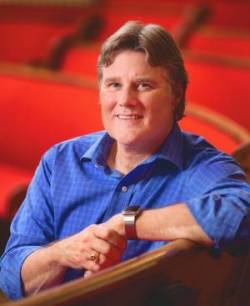Rediscovering holy wholeness
Material miracles and spiritual malignancy
By N. Graham Standish
Modern people are a compartmentalized people, which makes them efficient, expedient, and effective. But it also eviscerates their spirit by carving the world into secular and sacred compartments. Spiritual people are integrated people who consecrate the sacred in all of life, recognizing everything as whole and holy.
Modern life is miraculous. How else can we describe the world’s transformation over the last 100+ years? The “you” of the year 1900 would have ridden a horse or carriage everywhere, and you would have had no electricity, refrigeration, paved roads, or virtually anything we do now for entertainment. The you of today drives cars on paved highways, watches television, relies on computers, flies on jets, talks on phones,… We live in a miraculous age.
Modern life is materially miraculous because of our ability to compartmentalize. We are great analyzers who break everything down into smaller categories that help us understand and solve problems. We are also great at building components into increasingly complex machines and devices. Unfortunately, these modern material miracles cause us to increasingly live in a spiritually malignant age.
Another perspective on wholeness
While studying for a doctorate in spiritual formation I had the privilege of studying with laity, friars, brothers, sisters, pastors, and priests from all different denominations. One day over lunch I asked a Roman Catholic priest from Kenya what his biggest struggle with studying in the U.S. was.
He laughed and said that shopping for cereal in a grocery store paralyzed him because of the sheer number of choices. Then he became serious: “What I’ve really noticed is that in my country we are materially very poor, but spiritually we are very rich. In your country you are all so materially rich, but spiritually you are very poor.”
But all of us, regardless of terminology, can experience moments of overwhelming, limitless belonging, moments of universal communion.
He then said that in his country they see the sacred everywhere, while we have a hard time recognizing the sacred anywhere. We are so compartmentalized that we only rarely let the sacred out of the numerous secular holes we dig to contain our conceptions of reality. We lose a sense of the holy whole every time we dig a compartmentalized hole.
Recovering a sense of the holy whole requires working in compartmentalization without being of compartmentalization. We can live in a kingdom of compartmentalization, but we need to be of a kingdom of integration where we can see everything as part of an integrated, holy whole. This is a realm where everything is recognized as sacred no matter how secular we modern people label things. Secular compartments only exist in our reconstruction of reality, not in God’s kingdom of divine unity.
How do we live as holy whole people? By learning to live in the world with gratitude, which opens us to the mystical experience of holy wholeness. The spiritual writer, David Steindl-Rast, says:
“But all of us, regardless of terminology, can experience moments of overwhelming, limitless belonging, moments of universal communion. Those are our own mystical moments. The men and women we call mystics differ from the rest of us merely by giving these experiences the place they deserve in everyone’s life. What counts is not the frequency or intensity of mystical experiences, but the influence we allow them to have on our life. By accepting our mystic moments with all they offer and demand, we become the mystics we are meant to be. After all, a mystic is not a special kind of human being, but every human being is a special kind of mystic” (Gratefulness, the Heart of Prayer, pp. 207-208).
The Rev. N. Graham Standish, Ph.D., M.S.W. (www.ngrahamstandish.org) is senior pastor of Calvin Presbyterian Church in Zelienople, Pennsylvania (www.calvinchurchzelie.org). He is the author of seven books on spirituality and church transformation, and is an adjunct faculty member of Pittsburgh Theological and Tyndale Seminaries. He also has a background as a spiritual director, and as an individual and family therapist.